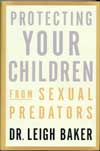WHY YOU MIGHT BE FEELING THE IMPACT OF STRESS MONTHS AFTER THE TRAUMA OCCURRED.
It has been over six months since the deadly Aurora Shooting. The trauma shook the very foundation of the survivors’ sense of safety and control. The victims of this senseless violence now know that nowhere is safe and that bad things can happen at any time, place, and event. They are struggling to live in a changed world that, at times, seems off balance. Most of the survivors dissociated during the shooting and did what they could do to survive. Freeze, hide, flee, or fight, the automatic physiological responses of the victims took over and they acted as if in a dream.
But inside that dream world, the body was taking over. The body’s responses were controlled by heavy doses of cortisol. This neurotransmitter Cortisol, known more formally as hydrocortisone is a steroid hormone produced by the adrenal gland. It is released in response to stress. Its primary functions are to increase blood sugar, suppress the immune system; and aid in fat, protein and carbohydrate metabolism. It also decreases bone formation. And its impact lasts in the body long after the traumatic event has occurred.
Therefore, six months after the deadly assault at the movie theatre, victims are complaining of feeling tired, sad, out of sorts, depressed, and irritable. This is because the stress of the event continues to live inside the brain. Therefore, the brain continues to act as if the traumatic event is still happening.
Within the brain, panic attacks are more likely to occur when this entire system (brain/fight or flight) is overly sensitized from previous trauma. Thus the neurological basis for panic is not exactly a “chemical imbalance but an overly sensitized ‘fear system.’
The victim’s brains are therefore so keyed up — in hyper vigilant mode — long after the perceived danger is gone and that is why there is often an exaggerated response to the stress and strain of their lives, and why victims don’t feel “safe” and “OK” when everything really is OK and problems are within a manageable range.
So don’t blame yourself for not feeling as good as you would expect to feel at this time. Your brain and body are still trying to absorb such a shock to the system and one way to handle all of this internal stress is to sleep. Your body is really tired and needs to heal. So remember to continue to eat right, exercise, and take care of yourself in special ways. Massages, hot aromatic baths, fragrant lotions and oils will signal safety, rest, and calmness to your brain. Meditation is also an excellent way to combat the mental fatigue and restore the brain to its resting place.
Some victims complain of weight gain since the trauma. The reason this happens is simple. Your body has drained itself of a great deal of energy and it needs to replenish itself. In addition, the internal stress reactions you are having deplete the sugar content of your blood and, after awhile, you begin to crave carbs. This is because your body still thinks its needs to store a great deal of energy and is preparing to use it for flight or fight, leaving you with cravings and constant munchies.
Other victims will fall prey to illnesses at this time. Trauma significantly compromises the immune system. During the trauma, you have just learned that your brain produces cortisol, which suppresses the immune system and leaves the victim vulnerable to catching viruses and bacterial infections. The suppression of the immune system continues on some level as victims re-experience the stress, particularly during the well-publicized trial of the suspect. Therefore, vitamin supplements and anti-oxidant immune boosters are helpful during this time.
The six-month mark is a tough one. The sympathy, outrage, and pouring of support from the public has waned, life has returned to its normal rhythms, and routines, and no one expects that you should still be reeling from the horror of what happened at the Aurora Theatre Complex. But don’t let others prescribe how you should be feeling now. You are still considerable impacted by the trauma, both mentally and physically, and you are going to need some more time to heal.
Victims often ask me, “How long does this recovery take” “Give me a time-line” “When should I start feeling better?” My answer is simple. Your body and mind will heal, especially if you are in therapy and doing all the right things for yourself. Every person takes his or her own time to heal.
Keep taking care of yourself and who knows, with the first buds of spring, there may be a renewal of growth and spirit. That’s a wonderful thought!
Look forward to the spring. Re-awakening, and a renewed energy are coming your way.
 More than one million American families reported cases of sexual abuse in 2000. The perpetrators of these acts come in all shapes and sizes...
More than one million American families reported cases of sexual abuse in 2000. The perpetrators of these acts come in all shapes and sizes...